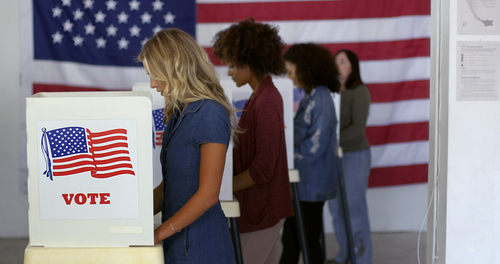In a heated political clash, Democrats are vocally opposing a newly introduced voter ID bill, branding it as both racist and xenophobic. The bill, which mandates that voters provide identification to cast their ballots, has reignited the long-standing debate over voter access and election integrity.
Democrats argue that the legislation disproportionately impacts minority communities, making it harder for them to vote. They claim that such requirements are reminiscent of historical voter suppression tactics aimed at disenfranchising Black and Latino voters. House Minority Leader Hakeem Jeffries stated, "This bill is a direct attack on our democracy, designed to silence voices and strip away the rights of marginalized groups".
Do you agree with Lauren Boebert saying all 50 states should mandate Voter ID for the 2024 election? pic.twitter.com/Wplr2RIzqE
— PAMELA HENSLEY🇺🇸 (@PamelaHensley22) June 11, 2024
Republicans, however, defend the bill as a necessary measure to safeguard the electoral process. They assert that requiring ID to vote is a common-sense approach to preventing fraud and ensuring that each vote is legitimate. Representative Chip Roy (R-TX) emphasized, "Election integrity is paramount. This bill simply ensures that everyone who votes is who they say they are".
The bill's supporters also point out that similar laws are already in place in numerous states and have not led to widespread disenfranchisement. They argue that obtaining an ID is a straightforward process for most citizens and that provisions are in place to help those who might struggle to acquire one.
And here is,
why Democrats won’t pass a VOTER ID BILL,
to overthrow your government. “It’s this simple.”
The Arizona Senate Audit CONFIRMS:
25% of the 1.9 million 2020 MAIL-IN BALLOTS, equaling 420, 987 to have NO signature match. And this is just in Maricopa County alone.… https://t.co/pufcA0OvBV pic.twitter.com/7063GPAiJO— 🇺🇸RealRobert🇺🇸 (@Real_RobN) April 27, 2024
Despite these assurances, the bill has sparked significant backlash. Civil rights organizations and advocacy groups have mobilized against it, organizing protests and launching campaigns to raise awareness about its potential effects. Critics highlight that access to ID can be challenging for low-income individuals, the elderly, and those living in rural areas, exacerbating existing inequalities.
The controversy over the voter ID bill is the latest episode in a broader national debate about voting rights. In recent years, various states have enacted or attempted to enact similar laws, leading to numerous legal battles. The Supreme Court has upheld some of these laws, while others have been struck down, adding to the complex and contentious nature of the issue.
As the bill moves through the legislative process, it faces an uncertain future. While it has garnered strong support from Republicans, it is expected to encounter significant resistance in the Democrat-controlled Senate. President Biden has also indicated his opposition, suggesting he may veto the bill if it reaches his desk.
The debate over this bill underscores the deep divisions in American politics regarding how to balance election security with ensuring broad voter access. As both sides prepare for what promises to be a contentious battle, the outcome could have significant implications for the upcoming 2024 elections and beyond.
The fervent discussions surrounding this voter ID bill reflect a nation grappling with its democratic principles and the ongoing struggle to create an electoral system that is both secure and inclusive

